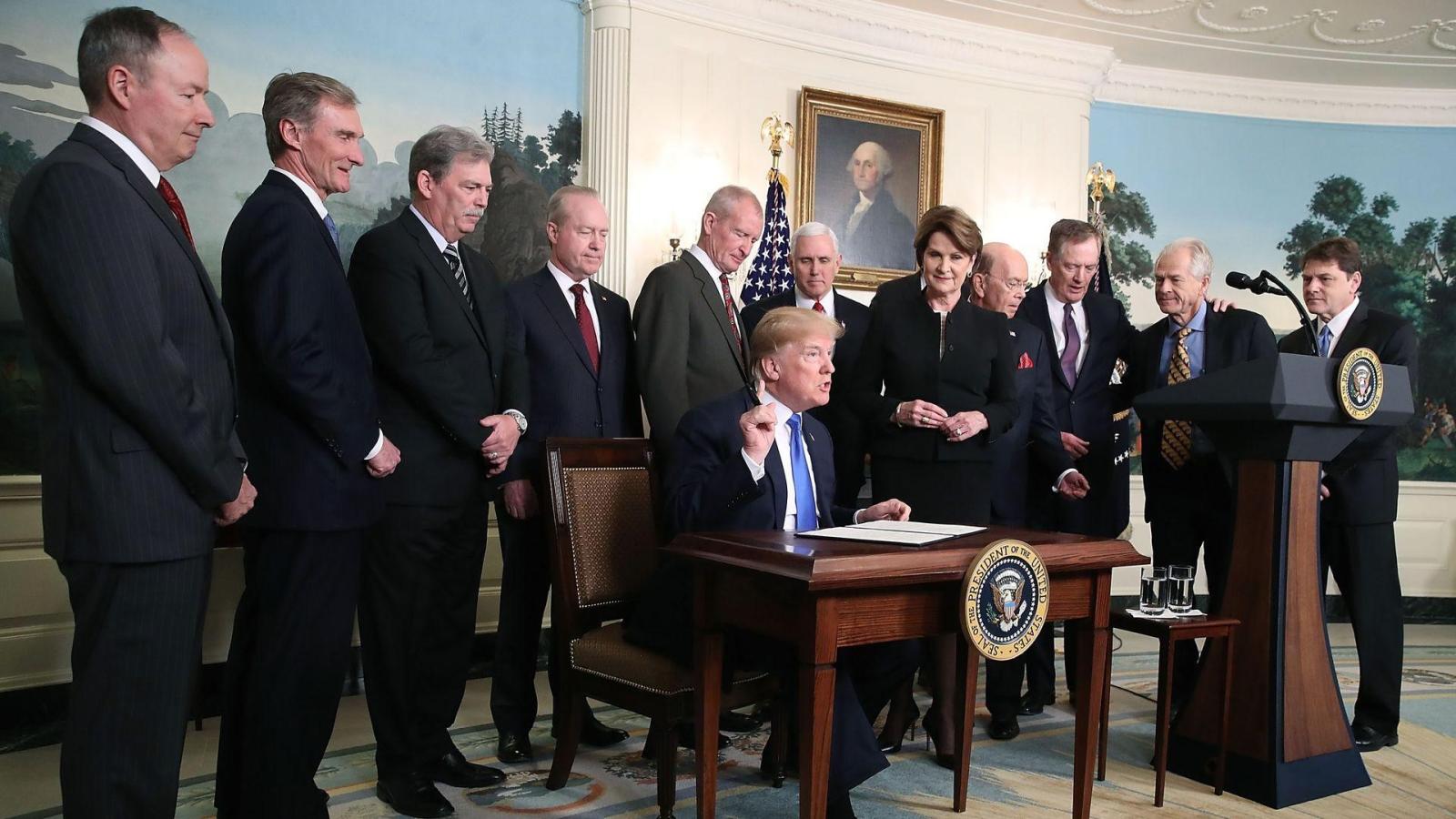By Carey King*

President Trump with business leaders as he signs a memorandum on "Chinese economic aggression" in the White House on March 22, 2018. Photo: Mark Wilson via Getty Images
When it comes to the economy, President Trump's "America First" mantra has meant renegotiating existing trade treaties and imposing tariffs on imported goods such as aluminum, steel and solar panels. Because they prioritize growth, G7 leaders, free-trade proponents and most economists oppose Trump’s anti-globalized stance.
Yes, but: Environmentalists and steady-state economists (i.e., those who study the physical constraints on economic growth) might secretly want to cheer. Why? More global economic activity translates to more natural resource extraction and greenhouse-gas (GHG) emissions, and vice versa. If you want to lower GHG emissions, tanking the economy is one way to do so.
The economic argument against Trump’s U.S.-centric stance is as follows: If you restrict the international flow of money, goods and services, the costs of production will increase and, subsequently, so will consumer prices. Higher prices translate to lower consumption, which translates to less production, which translates to slower economic growth for the global economy.
Many economists and energy analysts believe that increased economic and energy efficiency reduces energy (and resource) consumption in the long run, and therefore that we can continue to grow country-specific or global economic output while shrinking energy consumption.
But, but, but: The data show this not to be true for the entire global economy: Globally, energy consumption and GDP growth go hand in hand.
The bottom line: Trump might think he is helping the U.S. economy and workers by imposing tariffs. But by introducing these isolationist policies, he might slow globalization and therefore reduce GHG emissions — something he doesn’t care much about at all.
Go deeper: Read more on David Stern’s “stylized facts” of energy and economic growth.
*Carey King is a research scientist and the assistant director of the Energy Institute at the University of Texas at Austin.

